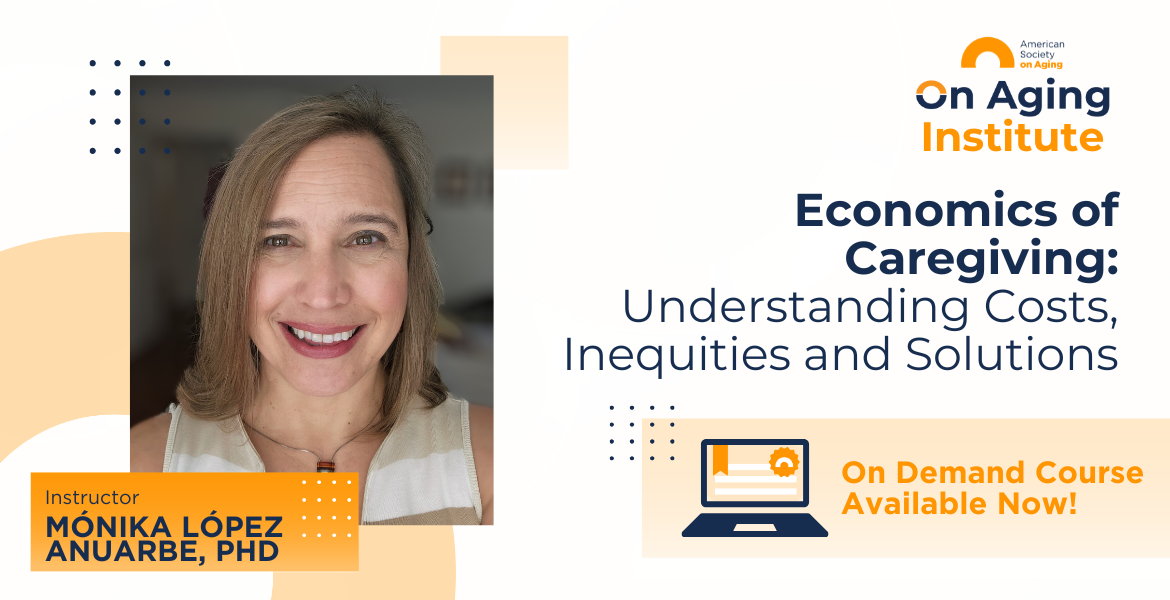
Economics of Caregiving: Understanding Costs, Inequities and Solutions

Available On Demand (November 7, 2025–November 5, 2026)
Price:
ASA Member Rate: $35*
Non-member Rate: $45*
Certificates & Credits:
Continuing Education credits are not available for this course. We will offer a Certificate of Attendance.
A yearly ASA membership is $275 for individuals and $100 for retired professionals & students. ASA also offers Organizational Membership. Learn more about membership here.
*This course is non-refundable.
Description:
Caregiving is the foundation of our society—yet its full value and burden often remain hidden. This course takes an in-depth look at the economic (financial and otherwise) realities of caregiving, who provides it, and who benefits. We’ll begin with a broad overview of the latest data and research, then dig into the four caregiving categories—paid, unpaid, formal and informal—to understand where costs and responsibilities fall. From there, we’ll examine how gender, family roles, cultural norms, geography and health conditions shape these dynamics and drive inequities. Finally, we’ll explore policy strategies and practical interventions to reduce disparities and ensure caregivers receive the recognition and support they deserve. Join us for a thought-provoking conversation that blends data, dialogue, lived experiences and actionable solutions.
Learning Objectives:
- Attendees will understand the economic realities of caregiving, drawing on current data and research.
- Attendees will analyze caregiving across paid, unpaid, formal and informal categories, and the distribution of costs and responsibilities.
- Attendees will examine how gender, cultural norms, geography and health conditions shape caregiving dynamics and inequities.
- Attendees will identify policy and practice strategies to reduce disparities and strengthen support for caregivers.
On Aging Institute Faculty:
Mónika López Anuarbe, PhD, is a professor of Economics at Connecticut College. She specializes in the economics of aging and caregiving, health disparities and equity, brain health and Alzheimer’s disease, generational wealth and access to healthcare. López Anuarbe has received research grants and awards from the National Institutes of Health, National Institute on Aging, National Institute on Minority Health and Health Disparities, and the Resource Center for Minority Aging Research, among others. In 2024, she was featured by the American Society of Hispanic Economists during Hispanic Heritage Month, and won the King Teaching Award, granted by Connecticut College to the top professor of the year.
Who should attend this session:
- Policymakers, advocates and nonprofit leaders interested in caregiving and family support policies.
- Health and social service professionals who work with caregivers or care recipients.
- Researchers, analysts and students studying aging, health economics or social policy.
- Employers, HR professionals and organizational leaders seeking to understand and support caregiving employees.
- Anyone interested in understanding the social and economic impact of caregiving and exploring strategies to reduce inequities.
